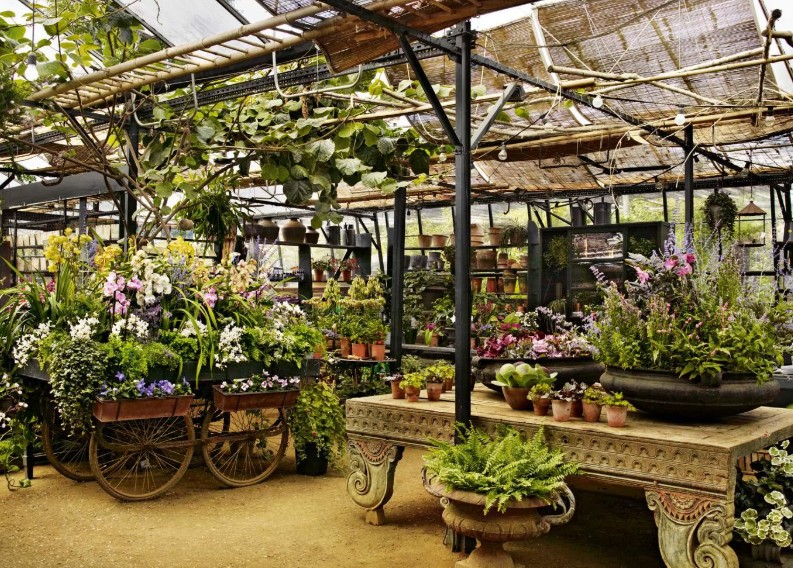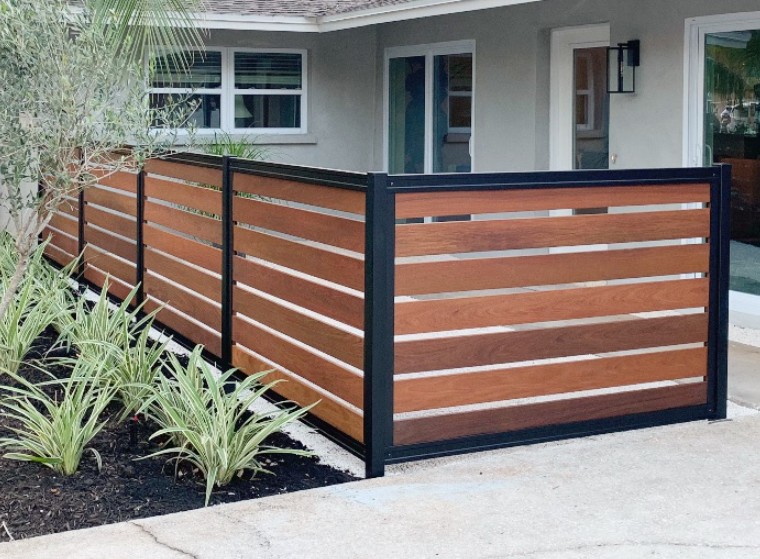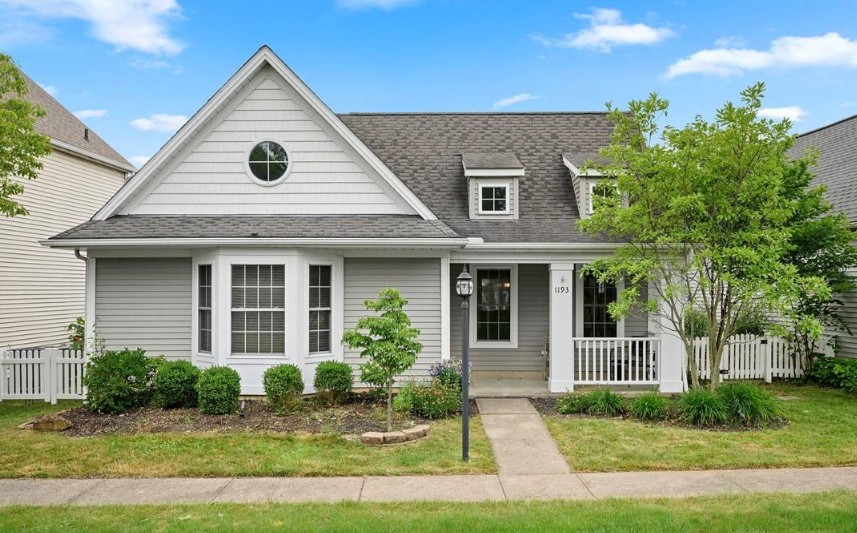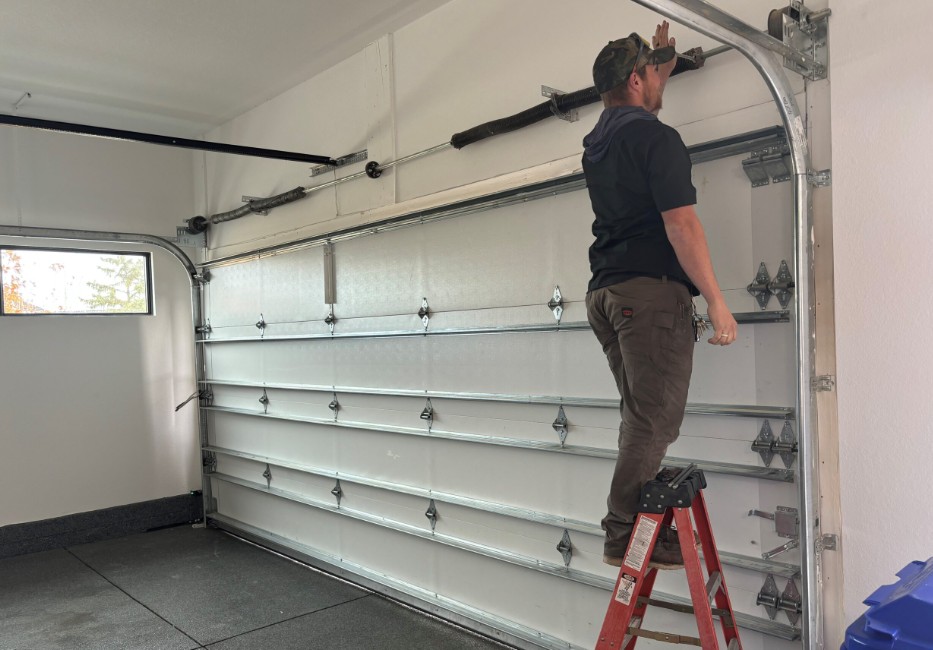Live oaks, wildflowers, pathways make front yard of Garden Ridge home a relaxing retreat.

At the end of a long day, Kelly Collum and John Hare often can be found relaxing in front of their Rumble Ridge Ranch home in Garden Ridge. Sitting in the shade of the tall live oak trees and among hundreds of native plants, they’ll enjoy a cocktail or three and chat up any neighbors who happen to walk by.
This is exactly what they had dreamed of when they decided to landscape the almost 1-acre front yard, which previously was so overgrown with cedar trees and brush that the house was barely visible from the street.
After finishing building their new house in 2019, they called in Cooper Henk of Skyline Landscaping in New Braunfels to make their dream a reality.
The wish list they gave him included a landscape of drought-tolerant plants, areas of both shade and sun so there’d be as wide a variety as possible, and meandering paths so they could walk among them. They also wanted an outdoor seating area, and they wanted it all to be as low maintenance as possible.

The couple wanted a landscape that looked more natural and without any straight lines or symmetry, instead of something more manicured and formal.
Richard A. Marini /Staff“I don’t want to be behind a lawn mower every weekend,” said Hare, who runs the San Antonio-based Core Design interior design company.
Two years later, the front yard looks nothing like those of most of the other, more traditional homes in this development, which borders the Texas Hill Country. There are no straight lines, nothing is symmetrical, and the lawns and bushes have not been watered and clipped to within an inch of their lives.
“We wanted something that felt more natural,” said Collum, a banker who also works with Core Design.
The project took two weeks to complete at a cost of $35,000 for Henk’s work, plus another $20,000 or so the couple spent on plants. That doesn’t include the extra $10,000 they had to spend to replace what was lost during the February freeze.
Henk said he knew from the start that the yard had lots of possibilities.
“First, it had amazing trees, so we wanted to keep those live oaks,” he said. “And second, the topography was really good, too.”

Before they began work on the landscape, the front yard, seen here when the lot was still for sale, was so overgrown, the house was barely visible from the street.
Courtesy John HareHe explained that, while the home is several feet below the street level, the yard wasn’t one long downhill. Instead, there were three smaller drops with level ground between them. This gave him the space to design a landscape of lush, colorful and easy-to-grow plants while also using river rocks to channel water away from the house during heavy rains.
The couple also told Henk they wanted a landscape they could wander through, so he laid out crushed granite pathways that meander among the live oaks and let them see the 300 or so plants they added up close, without getting their shoes muddy.
Most of the plantings they used will be familiar to any San Antonio homeowner who spends any time in their yard. Nothing’s too exotic; most are native or adapted to San Antonio’s hot, mostly dry climate. These include shade-tolerant turk’s cap and variegated ginger and sun lovers like red yucca, agarita, pink muhly and maiden grasses, indigo spire and abelia.
“I put stuff where it needs to be and where the environment intends them the grow,” Henk said.
One sunny section of the yard, for example, is mostly wildflowers the couple planted using 10 pounds of seeds they bought online.
“I can’t tell you how many different variations of flowers there are out there,” Collum said. “But they’re native and grow almost without any water. Like, that yellow one there, I don’t even know what it is, but it’s maybe 5 feet tall and that’s just from a seed.”
The wildflowers also attract pollinators; the couple said they see lots of butterflies, bees and hummingbirds flitting through the yard.
Henk’s company did most of the hard manual labor involved in the project: clearing the cedar and underbrush, laying down weed fabric, topsoil and mulch, and installing the metal edging and rock hardscape.

A view of the patio connected to the house at the water-conscious, landscaped home in Garden Ridge.
Ronald Cortes /Contributor“And then Kelly, John and I sat down with a book and picked the plants,” Henk said. “We said we like this, we don’t like that, this won’t work, that will.”
To give them another way to enjoy the yard, they installed a seating area close to the street with chairs, several small side tables and a fire pit at the center.
“There are a lot of walkers in the neighborhood, and what better way to get to know them than to have a seating area out front,” Collum said.
The pathway is illuminated with low-wattage lighting that makes it welcoming for mind-clearing strolls both day and night.
“We wanted a place where we could get some zen with a cocktail in hand and just ramble around,” Hare said.
The entire landscape was growing in nicely until the February freeze hit. And it hit hard. Temperatures dropped to 6 degrees and stayed below freezing for several days. The cold killed a number of non-native plants, including a huge prickly pear cactus and several large Mediterranean fan palms and oleanders, although a couple of these eventually grew back.
After discussing their options with Henk, Collum and Hare decided to not replace these plants because they can’t survive the kind of extreme temperatures we’ll be seeing more of because of climate change. Instead, they planted hardier specimens, such as lantana, rosemary, an Indian hawthorn, plumbago and several types of salvias.
While most will die back to the ground in a freeze, they should all grow back from the roots come spring.
Just in time for the couple to once again enjoy them as part of their new garden.
[email protected] | Twitter: @RichardMarini





